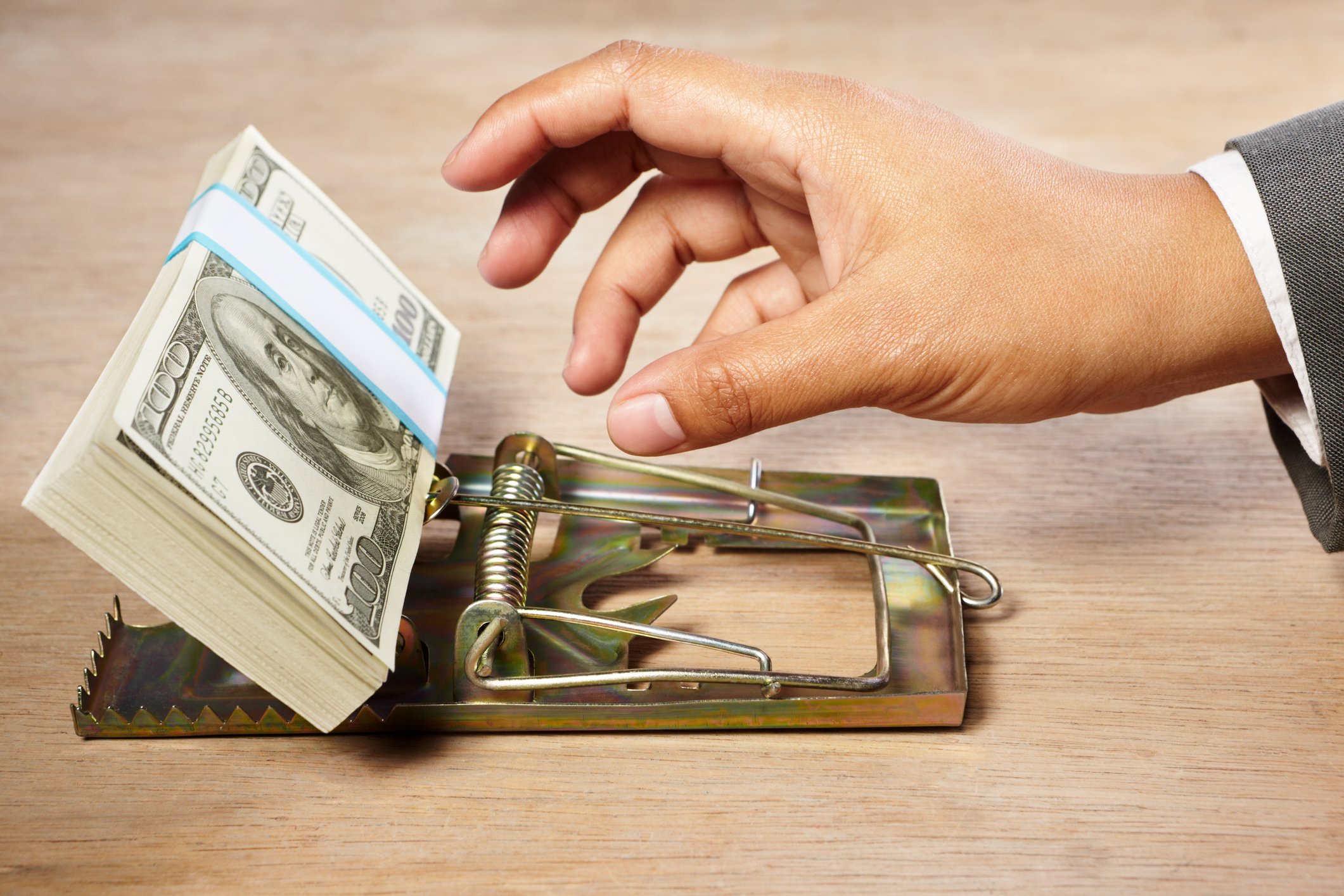Altria (MO 1.37%) recently raised its quarterly dividend 14.3% to $0.80 per share, which boosted its forward yield to a multi-year high of 5.5%. That big payout, coupled with Altria's low forward P/E of 13, makes the company look like a tempting income investment.
Yet Altria's stock also declined nearly 20% this year due to ongoing concerns about waning cigarette sales and tighter government regulation of tobacco products. British American Tobacco's (BTI +0.75%) takeover of Altria's biggest rival, Reynolds American, also sparked concerns about tougher competition.

Image source: Getty Images.
Therefore investors are probably wondering if Altria's fat dividend is worth the risk. Let's take a closer look at its business to find out.
How sustainable is Altria's dividend?
Altria spun off its international business as Philip Morris International (PM 1.77%) in 2008, and raised its dividend every subsequent year. The jump to $0.80 per share represents the "new" Altria's biggest ever dividend hike.
MO Dividend data by YCharts
Over the past 12 months Altria spent 47% of its earnings and 76% of its free cash flow (FCF) on its dividend payments. For comparison, PMI spent 103% of its earnings and 78% of its FCF on its dividends during the same period.
MO Free Cash Flow (TTM) data by YCharts
Altria's FCF growth improved significantly over the past two years thanks to AB InBev's (BUD 0.17%) buyout of SABMiller in 2016. Selling its stake in SABMiller to InBev generated a $5.3 billion pre-tax windfall for Altria, and made it one of the beverage giant's top shareholders.
Looking ahead, analysts expect Altria's earnings to grow 18% to $4.01 per share this year, and another 8% to $4.35 next year. This means that Altria should easily be able to cover its new annual dividend of $3.20 per share, albeit with higher payout ratios than before.
Understanding Altria's business model
Altria's earnings growth looks solid, but its sales growth is stagnant. Wall Street expects its revenue to rise less than 1% this year and about 2% next year. Altria continues to grow its EPS by raising cigarette prices, repurchasing shares, and cutting costs. This strategy worked for decades, but it can't last forever.
Cigarettes are a soft target for excise taxes, and the average pack already costs more than $8 in ten states according to Sales Tax Handbook. And Altria already reduced its headcount by about 20% over the past decade.
As for buybacks, Altria spent 34% of its FCF on buybacks over the past 12 months. When we add that to the 76% it spent on dividends, we see that Altria returned 110% of its FCF to investors. Looking ahead, Altria's higher dividend could throttle its ability to keep repurchasing shares -- which could hurt its EPS growth.
Will Altria's stock keep sliding?
A key concern about Altria is that its shipments are decelerating too quickly to be cushioned by price hikes or cost-cutting strategies.

Image source: Getty Images.
Last quarter, Altria's revenues, net of excise taxes, fell 4% annually. Its total domestic cigarette shipments fell 11% due to trade inventory movements, retail share losses, and the overall decline of the tobacco industry. After excluding trade inventory movements, shipments still dropped 5%, compared to an industrywide decline of 3.5%.
Shipments of Altria's flagship Marlboro brand tumbled 10%, while shipments of other premium brands dropped 9%. Shipments of all of its discount brands plunged 18%. Marlboro's retail market share also dropped 30 basis points to 43.2%, while Altria's total retail market share slid 70 basis points to 50.2%.
Things could get uglier as British American Tobacco ramps up its investments in Reynolds American's core brands to challenge Altria across the domestic market. The FDA's plans to pass new rules to lower nicotine levels in cigarettes and restrict the use of flavored cigarettes, cigars, and e-cigarettes could exacerbate that pain.
The bulls sometimes claim that Altria can offset the weakness of its cigarette business with sales of its other products, like cigars, snuff, wine, and e-cigarettes. However, sales of those products still account for a small percentage of Altria's revenue.
They also don't generate much growth. Its cigar shipments rose less than 3% last quarter as its Copenhagen and Skoal snuff shipments fell 3%. The only bright spot was the Ste. Michelle wine business, which posted 6% shipments growth.
Stay away from Altria for now
Altria likely raised its dividend to placate investors who watched the stock tumble this year. The tobacco giant can easily cover those payments, but its long-term future still looks murky. I'd personally avoid Altria for now, and stick with one of the big telcos for a comparable yield instead.











